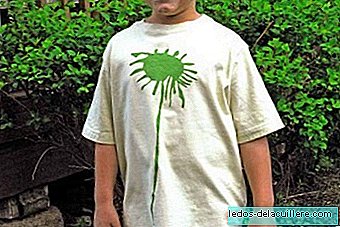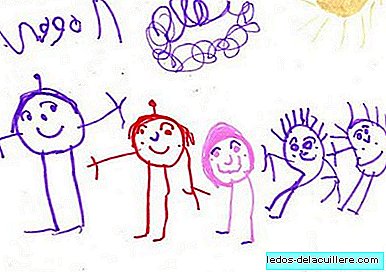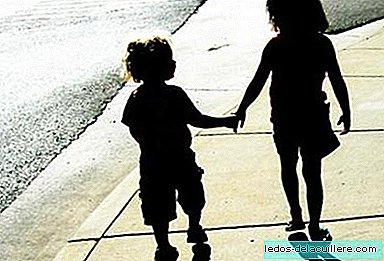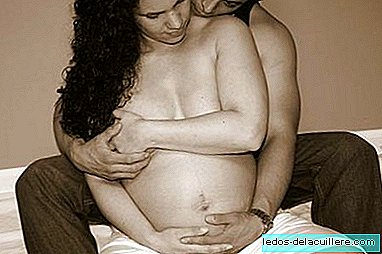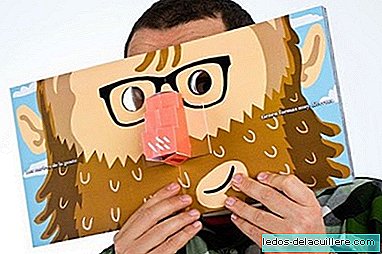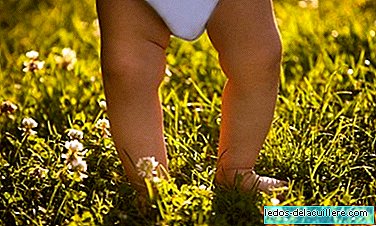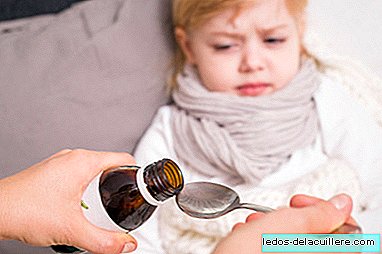
In the midst of flu and colds, children are already suffering from the most typical symptoms of these viruses: cough, mucus and in some cases fever.
For fever, which is a symptom and not a disease, we already have some guidelines to act with common sense; for mucus, nothing better than removing them with physiological serum or similar (or with the handkerchief if you already know); and for a cough, it’s worth knowing when to do something and when not, and keep in mind that there are some natural cough remedies that may be useful.
What is the cough?
Before entering the subject it is important to define what is cough, so that you understand that it is usual to do nothing to avoid it.
Cough is a defense mechanism that aims to expel something from the body, usually something that has reached the airways by mistake, or something that would be better if it was not there, such as mucus. By this I mean that the cough is intended to expel mucus, and therefore it is not considered a problem, but a benefit in the healing process.
The types of cough a person can have are:
- Dry cough: when he doesn't move the mucus or eject anything. It happens because there is an inflammation in the airways and the body believes that there is something to expel. It is an annoying cough that, not being effective, could try to alleviate or diminish in some way.
- Laryngeal or dog cough: also known as hoarse cough. It is a characteristic cough of those conditions that occur where the vocal cords are, it is painful and can even make breathing difficult by limiting the passage of air through inflammation.
- Productive cough or soft cough: It is the cough that accompanies the mucus movement. When the child coughs, one hears how he is moving the phlegm in his respiratory system, taking them outside or usually to the throat for the child to swallow. This cough is very useful and it is recommended to allow it to happen, not to limit it.
- Cough convulsa: That is the way to talk about "coughing attacks." If they happen suddenly, it could be because of some object that the child has aspirated, and is trying to expel. If it happens within the framework of a disease, it can be a sign of whooping cough, which can be serious in children and requires a medical visit.
What cough should be treated?
Having said that, the only cough that should be considered is dry cough, because it is annoying and does not help anything much. If the cough is productive, the ideal is to do nothing, so that the child can move the mucus, although if at night he does not rest for such a cough, the pediatrician could consider indicating any cough syrup or recommending a natural method.
What do you need to know about cough syrups?
As we explained a while ago, cough syrups are contraindicated in children under two years old because they can cause seizures, tachycardia, decreased levels of consciousness and even death.
For this reason, the US drug agency (FDA) recommends not using these syrups in children under four years, and especially not in children under two years, as we read on the page of the Spanish Association of Pediatrics EnFamilia. In Canada, in fact, they seem to go a little further and recommend that Do not use in children under 6 years.
And they are considered ineffective to treat cough and relatively dangerous if they are wrongly dosed or used with young children.
What are the natural methods to treat cough?

Once the child is coughing, if it is considered appropriate to treat the cough and you cannot or do not want to use cough syrups, use can be made natural methods, as they are Honey Y the onion.
Use of honey to treat cough
Honey is relatively effective in treating cough (it seems to be better than placebo, although somewhat worse than some cough syrups) and so it can be used in children over 12 months. This is because honey can contain contaminated spores of C. botulinum and until the year of life it is dangerous to give it to babies.
The issue is to give it mixed with a little milk or hot water, taking into account the subsequent tooth brushing (and avoiding that of soaking the pacifier with honey).
Use of sliced onion to relieve cough
The onion cut method in the room is one of the "grandmother's remedies" that everyone knows, that most say works, but that is not endorsed by scientific data. That is, there are no studies that say that it works for something, but neither that they say that it does not, so as long as one or another thing is demonstrated, and since it is a safe method, it is usually recommended because many people explain that they are doing well.
The method is to cut an onion into two or more pieces and place it on a plate near where the baby or child sleeps, so that it can breathe the gas it emits when it is cut (thiopropanal sulfoxide, known as tear factor). This gas is what makes us cry when we cut it, and according to the theory, the children make them "cry their throat", so that it is more moist, less dry and therefore has less cough.
And the humidifiers?
Another possible natural method is to use elements that increase the humidity in the room where the baby sleeps, but its use is controversial. In cases of dry cough Because the environment is dry, humidifiers can help, and in case of mucus, they could help the secretions remain liquid and the child can get them out better.
However, you have to clean it and dry it well every day to prevent contamination of bacteria or mold and end up being worse than the disease. In addition, excessive use can cause dampness and mold on the walls and ceiling of the room, and could be counterproductive to the baby's health.
On the other hand, if the cough causes bronchitis or is of asthmatic origin, the use of a humidifier is contraindicated.
Hydration and physiological serum
To help the child cough less, ideally he can go taking out the mucus generated by the cold, and for this it is important that you are well hydrated (it is not necessary that you drink even if you are not thirsty, but that you are drinking fluids) and that you have the possibility of removing the mucus, usually with the so-called "washed" with physiological serum, which will help you breathe better and probably cough less, by having less mucus to move.
Photos | iStock
In Babies and more | The child has a cough, when to go to the pediatrician ?, We repeat all: "Fever is our friend", It is confirmed what grandmothers recommend: honey is a great cough remedy




